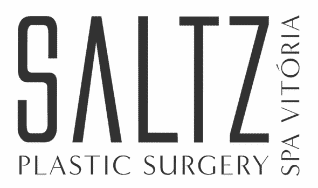
There are various reasons why a woman may seek revision surgery. Here are the main issues to be addressed with these procedures.
Changing the implant size
Sometimes a patient comes to Dr. Saltz unhappy with her choice of implant size, often wishing to increase the size. The first thing he advises is to wait one full year before opting to make a change. This allows for any swelling to fully subside and for the implants to settle. If the patient still wants to change her implant size, Dr. Saltz will enter through the original incision. If a larger implant is desired, he will increase the size of the pocket, the space in the breast to hold the implant. If the patient seeks smaller implants, he will reduce the size of the pocket with sutures to fit the smaller implants. In cases of reduction, a breast lift may be done in conjunction with the implant revision to remove any sagging tissue and possibly relocate the nipples.
Capsular contracture
This is the main complication involved with breast augmentation. Just as when any artificial prosthetic is put into the human body, the body also builds scar tissue around breast implants. This reaction is called the “capsule” and it is made up of calcified cells and scar tissue. If this capsule becomes very thick and causes the implant to shift or the breast to feel very firm, or if there is pain from the constricting scar tissue, this is called capsular contracture. If the capsule is very calcified, Dr. Saltz will remove it along with the implant. If it isn’t, he usually will leave it in place. If there is a rupture of a silicone implant, the capsule may contain silicone shell fragments, silicone gel, and inflammatory cells that all need to be removed prior to placing new implants. This is especially the case with silicone implants older than 15 years.
Implant position
Sometimes a less experienced surgeon will place the implant pockets either too far away or too close together and the patient is not happy with the placement. In these cases, Dr. Saltz will use scar tissue from the capsule and will reconstruct new pockets for the implants in better positions.
Implant rippling
Implant rippling is usually only a problem that occurs with saline implants. It happens when the implants are placed atop the chest muscle and they show rippling or even the edges of the implants can be felt. In these cases, Dr. Saltz enters through the original incision and replaces the implants with better muscle coverage. This may involve switching implant types and/or placing them in new breast pockets.
Implant removal
When a patient decides she no longer wants to have her implants, they are removed through the same incisions. Dr. Saltz will also remove the capsule if it is calcified and thick. In most cases, a breast lift will be recommended because the skin has stretched with the implant size. A lift will remove this excess skin and breast tissue and bring the smaller breasts back up higher on the chest.
Some of the reasons we see patients for implant revision procedures are beyond control of the patient or surgeon, such as when an implant ruptures and needs to be removed and replaced. But others are due to the surgeon, such as asymmetry following implant placement. That’s why Dr. Saltz implores patients to do their research prior to having any cosmetic surgery procedure. You shouldn’t trust any procedure to anyone who isn’t board certified by the American Board of Plastic Surgery, as Dr. Saltz is. And, of course, it’s crazy to trust a surgery to the doctor offering the lowest price.
If you wonder if you may need to have implant revision surgery, call Dr. Saltz at our Salt Lake City office, (801) 274-9500, or our Park City office, (435) 655-6612, to schedule a consultation.




